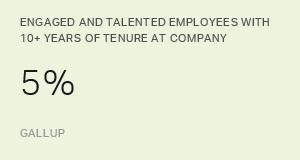Story Highlights
- The ability to create a business model around an idea is rare
- You can take action by starting with a minimally viable product
- When other innovators and entrepreneurs quit, the best builders persist
Did you miss the first three articles in this builders' series? Learn more about how to be like Elon Musk, how to become self-aware and how to recognize opportunities.
Action.
It's the link to turning your good idea into a business venture.
Yet, it's the hardest step to take and having the nerve to do it is rare.
We all have that one coworker whose book idea could make her the next J.K. Rowling. We all have an in-law who wants to open an artisanal ice cream truck that will surely blow up your Instagram feed.
But, we all hesitate to take action.
Unfortunately, ideas don't generate value until you take action on them. Builders are the rare people who understand this -- and decide to take action.
Great builders are the ones that persist when others quit.
Are you ready to take action but unsure of how to begin?
Luckily, Gallup has scientists who devote themselves to this subject, and we discovered that the most effective builders have a unique way of overcoming the obstacles between the inception and activation of their ideas.
Turning Your Idea Into Action
Great builders often begin the process by developing a basic version of their product or service called a minimally viable product (MVP).
MVPs prove that your idea is viable and that there are customers willing to embrace it. Well, sometimes that's what MVPs prove.
More often, MVPs prove that the product idea needs refinement before customers will embrace it.
When this happens, builders are not discouraged. They use a process that helps them incorporate feedback and develop a sustainable business model.
Here's how it works:
Hypothesize: Gallup research shows that the most successful builders start small and minimize risk by beginning with certain assumptions -- informed guesses about the market, who their customers are, what those customers need, and if (or how much) they will pay for it. Highly detailed hypotheses help builders think through their ideas and spot problems and opportunities early.
Experiment: Builders then test their hypotheses by conducting experiments with customers that validate every part of the plan. How? Easy -- they start selling. Even if their product isn't fully maximized or perfected, face-to-face interactions with their customers offer vital feedback that builders can't get any other way.
Measure outcomes: Builders need to gauge the success of their experiments by measuring how well they understand their customers' needs, the value customers place on the builder's product, how many customers are interested, and how much these customers are willing to pay.
Learn: The information builders get from their hypotheses, experiments and measuring outcomes is absolutely vital -- if builders learn from it. Builders use this data to create a second, better MVP. And then ...
Hypothesize again: A refined MVP will introduce new assumptions about the product and customers. Builders should write these hypotheses down using information garnered from the early stages of the cycle. Armed with this new, better data they can launch a new, better experiment.
The Best Laid Plans
Builders may start with a general goal -- an idea of what they want to build, for whom and how.
But the way the experiments are conducted and the findings that result will likely alter the original plans. That's good; each iteration brings a builder closer to creating something a customer wants to buy.
Building is a process, and it may take builders down unexpected paths. Maybe even paths they're not inclined to follow, and that's OK.
That's typical -- and no one has all the talents necessary to build successfully. That's why successful builders have teams, which is the topic of the next article in this series, the fourth key: building a team.
You can start turning your ideas into a business and help others do the same today:
- Discover your unique builder talents.
- Get a step-by-step guide to successful building by ordering Gallup's new book, Born to Build.
- Learn how to coach other builders by taking Gallup's Coaching Builder Talents course.
Jennifer Robison contributed to this article.



